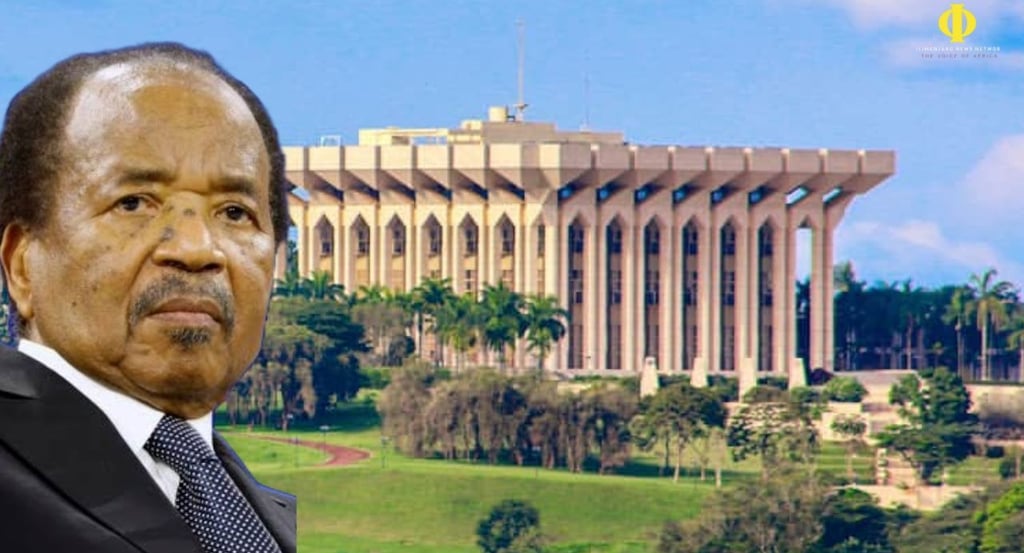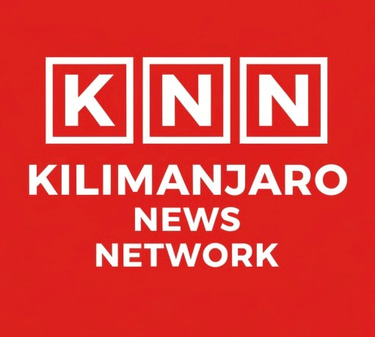Paul Biya’s Phantom Campaign: The World’s Laziest Candidate Eyes an Eighth Term.
POLITICS
Theodore Nkwenti
9/14/20254 min read


Paul Biya’s Phantom Campaign: The World’s Laziest Candidate Eyes an Eighth Term.
At 92, Cameroon's President Paul Biya has turned political inertia into an art form. On July 13, 2025, he announced via a cryptic X post that he’s running for an eighth term in the October 12 presidential election, dangling a vague promise that "the best is yet to come." Since then, the world’s oldest head of state has vanished from the public eye—no rallies, no speeches, not even a perfunctory wave to the cameras. If laziness were an Olympic event, Biya would clinch gold without breaking a sweat, setting a world record for the most sedentary campaign in modern political history. King Midas, with his cursed golden touch, would envy Biya’s ability to transform minimal effort into perpetual power. But behind this phantom campaign lies a darker reality: a deafening silence from Cameroonians, stifled by threats against protest and a pervasive fear that grips the nation.
Biya’s absence isn’t just a quirky footnote; it’s a calculated strategy in a country where dissent is a dangerous gamble. For over four decades, his 43-year rule—longer than most Cameroonians have been alive—has relied on a well-oiled machine of control, blending strategic invisibility with ruthless suppression. His re-election bid, announced with all the fanfare of a late-night social media post, has left Cameroonians and observers alike in a familiar limbo. Where is he? Rumors swirl about his health, fueled by his age and frequent, mysterious retreats to Geneva or other foreign havens. Opposition groups, led by figures like lawyer Akere Muna, have petitioned to disqualify Biya, citing his age and "recurrent health absences" as violations of electoral law. Yet, the electoral commission, widely seen as an appendage of Biya’s Cameroon People's Democratic Movement (CPDM), remains unmoved, poised to greenlight his candidacy.
This isn’t Biya’s first disappearing act. His presidency has long been defined by absence, with rare public appearances—often tightly scripted—and extended periods abroad. In 2018, he reportedly spent a third of the year outside Cameroon, earning the moniker "the absentee president." Now, nearly two months after his re-election announcement, his silence is louder than any campaign slogan. It’s a bet that his name, synonymous with Cameroon’s political DNA, needs no stump speeches to secure victory. The CPDM’s iron grip, backed by a loyal bureaucracy and security apparatus, ensures that Biya doesn’t need to kiss babies or debate policy. But this time, the silence extends beyond Biya to the streets of Yaoundé and Douala, where fear has muzzled voices that might otherwise rise in protest.
Cameroonians are no strangers to repression. The government’s zero-tolerance stance on dissent has created a chilling effect, where the mere whisper of protest can invite swift retaliation. In recent years, security forces have cracked down on demonstrations with tear gas, arrests, and worse. The 2018 election, which saw Biya claim 71% of the vote amid fraud allegations, was followed by the house arrest of opposition leader Maurice Kamto and the jailing of his supporters. This time, Kamto’s disqualification—announced on dubious grounds shortly after Biya’s candidacy—has further dampened hopes for a fair fight. Posts on X capture the public’s resignation: one user wrote, “Biya doesn’t campaign because he doesn’t have to. Protest, and you’re in a cell.” Another quipped, “Cameroon’s real election is between fear and silence.” The message is clear: speaking out risks everything in a country where fear is a currency stronger than the franc CFA.
The opposition faces a Kafkaesque nightmare. Kamto’s exclusion, alongside harassment of figures like Cabral Libii and defections from former allies like Issa Tchiroma, leaves a fractured field battling a ghost. Biya’s absence shields him from scrutiny over Cameroon’s crises: a nine-year separatist conflict in the Anglophone regions that’s killed thousands and displaced over 700,000, economic stagnation, and corruption scandals like the Glencore affair implicating state oil officials. Why campaign when the system—rigged by loyalists in the electoral commission and judiciary—does the work? The silence from Cameroonians isn’t apathy; it’s survival. Threats of imprisonment, violence, or economic retaliation loom over any who dare disrupt the status quo. Families of activists have been targeted, and social media is monitored for signs of unrest, creating a climate where even whispers of dissent are self-censored.
If Biya wins, he’ll be 99 by the end of his term in 2032, potentially outlasting Fidel Castro as one of history’s longest-serving leaders. But the cost is steep. Cameroon’s youth, over half the population, have known no other president. The Anglophone crisis festers, economic woes deepen, and corruption erodes trust. Yet Biya’s phantom campaign, buoyed by fear, suggests he’s untouchable—a vampire president draining the nation’s vitality from the shadows. On X, a user summed it up: “Biya’s campaign slogan should be ‘Vote for me, or else.’”
King Midas turned everything to gold, but his touch was a curse. Biya’s grip on power, forged through absence and intimidation, has frozen Cameroon in a time warp, silencing a nation too afraid to speak. As October 12 nears, Cameroonians deserve more than a spectral leader and a rigged game. They deserve a future free from fear, not another rerun of a 43-year reign. But with Biya, the show goes on—whether he shows up or not, and whether the people dare to protest or remain locked in their deafening silence.

